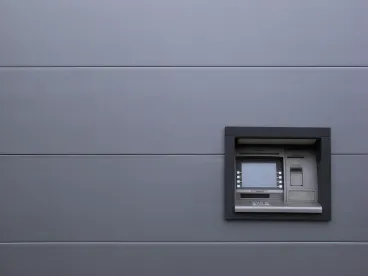Weighing in recently on a debt collector's petition for writ of certiorari in Madden v. Midland Funding, LLC, the United States Solicitor General agreed that the Second Circuit was wrong in concluding that the National Bank Act (NBA) did not apply to debt the collector acquired but nevertheless did not support Supreme Court review. In deciding Madden, the appellate court has created significant uncertainty by departing from precedents protecting national bank lending. This closely watched case could impact not only financial institutions that make loans but also those that buy their debt.
The Madden Decision Contracts NBA Preemption
Congress long ago enacted a federal usury law and cause of action for claims against national banks, specifically NBA Sections 85 and 86. These provisions created "most favored lender" preemption and the Supreme Court has recognized that the NBA provides an exclusive claim and basis for federal jurisdiction (including complete preemption for removal from state court).
However, in Madden v. Midland Funding, LLC, the Second Circuit held that the NBA does not preempt a consumer's state usury law claims against a debt buyer as assignee of a national bank. There, a New York consumer who failed to pay her credit card bill filed a putative class action against the debt buyer (and its affiliated account servicer) alleging that they violated state usury law by charging and attempting to collect interest at an unlawful rate. The originating national bank had sold the delinquent account to the non-bank debt buyer, which then tried to collect on the debt (including continuing interest) according to the terms of the original credit agreement.
The district court entered judgment for the defendants, concluding that the NBA preempts any state law usury claim. The court cited a string of cases reflecting the holding that courts must look to the originating entity and not the downstream assignee to determine whether NBA preemption applies. The district court also cited cases supporting the common law of assignments, which generally provides that a loan that is made at a lawful rate of interest cannot become usurious because of a subsequent assignment.
The Second Circuit reversed on appeal holding that NBA preemption did not apply to the non-bank defendants. The court first noted that neither defendant was a national bank, a subsidiary, an agent of a national bank or acting on behalf of a national bank. Second, the court concluded that applying state usury law to debt buyers would not "significantly interfere" with the originating national bank's ability to exercise its powers under the NBA because it would not prohibit a national bank from selling its debts.
The defendants filed a petition for writ of certiorari, articulating that a circuit split exists concerning courts' treatment of assignees under the NBA, the Second Circuit's decision sliced into longstanding Supreme Court precedent, and the result added uncertainty to the secondary markets for debt. The plaintiff, on the other hand, has opposed the petition suggesting that there is no reason for the Supreme Court to consider the case, that a non-bank buyer of distressed or defaulted debt is not permitted to use the NBA preemption provisions, and the potential impact on the secondary market is overblown.
Amicus Curiae Views
While the Supreme Court is considering the petition for certiorari, numerous groups on behalf of the defendants have filed amicus curiae briefs. Those supporting the grant of the writ point out the Second Circuit erred in limiting the scope of NBA preemption and highlighted the interference with banking powers and the potential negative impact on the secondary market.
In light of the significance of the federal statutes at issue, the Supreme Court requested the United States Solicitor General to weigh in. Although the Solicitor General concludes that Supreme Court review is unnecessary because a circuit split does not exist, the government agrees with the defendants that the Second Circuit was wrong on the law. Specifically, the Solicitor General believes that the Second Circuit's "analysis reflects a misunderstanding" of NBA § 85 and the Court's precedents: the state-law usury claim is preempted because it significantly interferes with a national bank's "authority to make and transfer loans at the permitted rate of interest" and that assignees are permitted to charge the same authorized interest rate as the originating national bank. The Solicitor General also observed that the marketability of a national bank's portfolio could be diminished if the bank could not transfer to assignees the right to charge the same rate of interest.
The Potential Effects of Madden
The Madden decision potentially carries far-reaching ramifications. The secondary market relies on the long-accepted notion that credit agreements are valid when made to enforce those agreements pursuant to the terms agreed upon between the original creditor and borrower. Buyers of defaulted debt, like the defendant in Madden, generally will not have the same interest rate authority as the creditors selling such debt. The same is true for securitization vehicles or purchasers of whole loans.
Secondary market participants may be leery of acquiring defaulted debt or taking assignments in securitization transactions where a national bank's rates could push the debt into a usurious range. This could stall secondary markets for national banks where the debt is otherwise valid because federal law prescribes the rates they may charge. The decision also raises the specter of interference or impairment of the powers granted to national banks under the NBA. The Madden case creates uncertainty and could allow individual state laws to influence the interest rates that national banks charge and the amount such banks can demand in selling their debt downstream.



 />i
/>i
